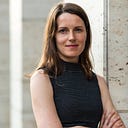The deschooling idea in a few minutes
This week brought into my podcast list an amazing topic — deschooling our lives and our minds by Zak Slayback and Jeff Till (Please find the podcast here). I felt like many years of my thoughts about our education system just got proper names and were sorted out to get some clarity. There are so many aspects that could and should be taken care of when we decide to free ourselves up from more than 15000 hours of school impact on our mindset.
As we need to start somewhere, I decided to summarize main takeaways here, both for me and for my readers. Thou I start simple with the list, I feel that this podcast changed my life. I will continue looking for a chance to jump in the train of changes and contribute towards a more creative society.
School damages us while building provisional self-esteem, ie:
- We do not have developed a relationship with yourself. During school years we do not practise making meaningful decisions for your life, finding meaning and fulfilment.
- We develop the permission mindset, even to the level that we have to ask someone else to go to the bathroom. As grownups, we continue looking for permission to proceed with our wishes, ideas and needs.
School is usually an example of bad use of time, ie:
- The rhythms of school do not meet our natural sleep rhythms. It only prepares us for the upcoming drill in life to stand up early. We learn to believe we are not in control in our schedule and the ability to manage our own life and time are restricted from the first grade.
- 45 minutes of a lecture is not enough to get engage in activity as a flow, and too much if the subject does not interest you
- We do not have enough time of productive boredness, as school is designed to trigger us is many ways, switching classes, talking to friends, taking tests etc(and some of these tasks are bored itself!)
- Absence of free play — we were put or put our kids at school and after school activities, or share their playing time, that only limited space is left for creative playing.
The school builds intellectual and social dependency, ie:
- The entire state is designed to take a vacation at the same time. We need to ask permission to take our kids to vacation for a few days, and quite often the answer is no
- The school contributes to destroying the institution of a family when children spent 40 hours per week at school.
- We learn the subjects either way too early, or without a context, or not when we ready to learn (either too early in the day or too early in the age).
Standard school is poor preparedness for adultness, ie:
- Learned topics are not combined with the real-life needs
- In many countries working as a teenager are discouraged
- Meaningless or limited networking
- Minimum exposure to different age groups or adults. Adults are seldomly seen as friends and more as an authority.
- Extension of childhood and the postponement of adulthood
How to deschool yourself?
I would say this is also a very personal and individual question. However, the podcast moderators and guests suggested few tips, where to start. I was relieved to hear that none is offering to sell the house, drop the job and just go to build Lego blocks. We still stay in our lives, watch out for more options for our kids, build those new options, work with our mindsets and look to put creativity into everyday activities. For example:
- Allow one hour each day doing things for fun, exploring or learning something without real financial purpose. Give yourself one hour per day during something for fun and for your curiosity. Let yourself experiment, thus freeing your mind and raising new ideas.
- Challenge provisional self-esteem: be mindful about the needs and choose you are doing. If you do not know why you are doing something, it might be you just follow what others are doing.
- Network across different age groups, professions and cultures
- Cultivate self-knowledge. Quantify and measure yourself, track your habits, time spent on important topics, check methods and ideas you find when reading and extending your understanding. Use data to learn, as there are multiple options to understand yourself more.
- Do not read another book, do not get another diploma. Start doing and creating, to unlock and find your hidden joy of learning and giving your skills to the world!
